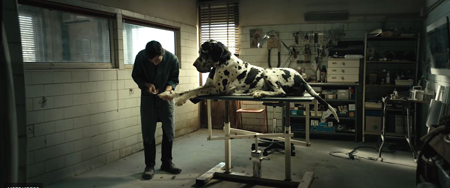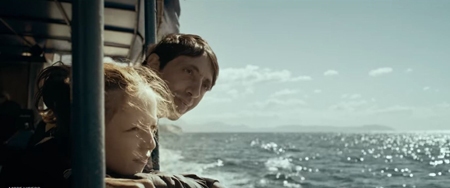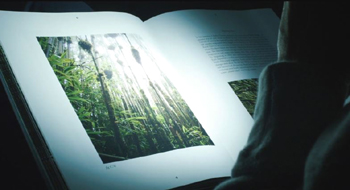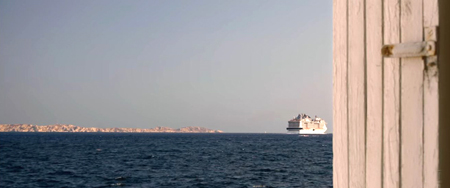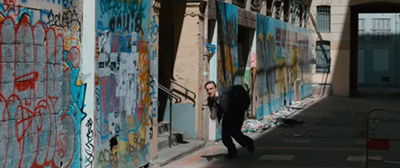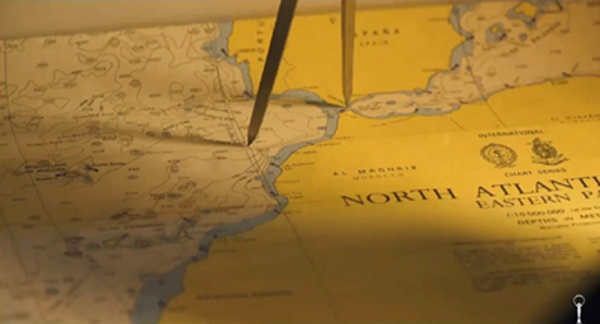Seder-Masochism (2018)
Kristin here:
The Vancouver International Film Festival [2]is over, but we still have films to talk about. Here are four, and David and I will probably post another blog apiece. Between Venice and Vancouver, we have seen a lot of great and very good films recently. Once again, the claims of the death of cinema are robustly refuted.
Dogman (Matteo Garrone, 2018)
Garrone is best known outside Italy for his 2008 film Gomorrah. While that film was about gangs and organized crime in Naples, Dogman centers around a shifting relationship between a meek-mannered dog/boarder/groomer who has fallen in with a volatile, enormous local thug.
The title emphasizes the honest side of Marcello’s life, and we see some comic scenes of him with dogs. Soon, however, it is revealed that he sells cocaine on the side and sometimes acts as a getaway driver for thefts committed by the monstrous ex-boxer, Simoncino. Eventually he even takes the fall for a robbery and spends a year in jail in Simoncino’s place.
We’re clearly intended to side with this sad sack. After one house robbery, Simoncino’s partner reveals that he put a dog in the freezer to keep it quiet. Marcello sneaks back in and, a suspenseful and remarkable scene, attempts to revive the frost-covered animal. He also dotes on his daughter and seemingly pursues his criminal activities in order to be able to take her on “adventures,” including scuba-diving.
Despite this sympathetic side, however, Marcello never seems to consider giving up crime; he’s mainly interested in getting his fair share of Simoncino’s ill-gotten gains. Although the film is continually entertaining and suspenseful, its ending is somewhat disappointing. We are left knowing what Marcello’s probably fate will be, but we have little sense of his attitude toward what has happened.
Marcello Fonte, looking like a rather emaciated version of the comic Toto, won the Best Actor prize at the Cannes Film Festival.
Magnolia has the US rights and plans to release Dogman in 2019.
Seder-Masochism (Nina Paley, 2018)
Seder-Masochism is the only US film I’ll be writing about from Vancouver. (We tend to skip US films here, since we assume we can see them in the US.) Paley’s not part of the Hollywood establishment or even the mainstream indie scene. It’s not easy to see her wonderful animated films on the big screen, but their bright colors and imaginative graphics deserve to be shown that way.
 [6]Seder-Masochism is Paley’s second feature, after Sita Sings the Blues (2008). She does all the animation herself, holed up, as she puts it, like a hermit with her computer. She also avoids the standard distribution methods for indie films, because she’s an opponent of copyright for artworks. She provides open access to her films, initially at festivals and then online. (For more on this, see my transcript of a Q&A [7] I helped run when Sita played at Ebertfest in 2008.)
[6]Seder-Masochism is Paley’s second feature, after Sita Sings the Blues (2008). She does all the animation herself, holed up, as she puts it, like a hermit with her computer. She also avoids the standard distribution methods for indie films, because she’s an opponent of copyright for artworks. She provides open access to her films, initially at festivals and then online. (For more on this, see my transcript of a Q&A [7] I helped run when Sita played at Ebertfest in 2008.)
 [8]I should say that no one should assume from the title that this film is grim and/or anti-Jewish. On the contrary, it’s a witty exploration of the Exodus myth and its historical links to the decline of early goddess worship in favor of all-powerful male gods in monothesism. The framing situation is a conversation between Paley and her father conducted shortly before his death, with Paley as a small goat and her father as God (see top).
[8]I should say that no one should assume from the title that this film is grim and/or anti-Jewish. On the contrary, it’s a witty exploration of the Exodus myth and its historical links to the decline of early goddess worship in favor of all-powerful male gods in monothesism. The framing situation is a conversation between Paley and her father conducted shortly before his death, with Paley as a small goat and her father as God (see top).
This conversation is a mix of humor and serious points about Judaic traditions and particularly the celebration of Passover. The story of Moses and the Exodus is rendered in much the same way she treated the tale of Sita and Rama from the Hindu epic, the Ramayana–with musical numbers. Moses is introduced with “Moses Supposes,” from Singin’ in the Rain, and, inevitably, there is a “Go Down, Moses” episode. Unlike Sita, where blues songs were used throughout, the musical pieces in Seder are wide-ranging, culminating in a brilliant three-minute summary of the history of the territory which is now Israel, done to “This Land is Mine,” the song written to the theme of Otto Preminger’s Exodus. (The sequence [9], as well as several other excerpts from Seder are available on YouTube.)
The sequences set in ancient Egypt are generally accurate. I was amused by the fact that the animal and bird hieroglyphs in the background inscriptions moved rhythmically during the musical numbers, and the Hathor heads on the sistrums sang along. Using Hathor, the cow goddess, as the golden calf was an inspiration.
Seder-Masochism got the most enthusiastic applause I heard at the festival, partly because the filmmaker was present (in her custom Seder dress). There were Sita fans in the audience, and one Jewish lady asked how she could get a copy to show her 12-year-old daughter. Paley replied that the film will continue to play festivals and probably be available on the fim’s website [10] for download in the spring.
In the meantime, watch for it at festivals–or let the organizers know that you want to see it on their schedule. We were happily surprised to see a full-page ad for the Los Angeles Animation Is Film Festival (October 19-21) in the current Variety (above left) and illustrated by an image derived from the film. You may find others.
Styx (Wolfgang Fischer, 2018)
I was surprised to discover that so far Austrian director Wolfgang Fischer’s Styx has not been picked up by a North American distributor. It seems like the sort of film to appeal strongly to audiences. It’s protagonist is a strong, ultra-competent woman, it has a riveting plot full of suspenseful situations, and it deals with the immigrant crisis facing Europe.
A long portion of the film contains no real dialogue. The opening sequence occurs at the scene of a traffic accident where the heroine, Rike, is established as a doctor as she heads the team treating the victim. Cut to her provisioning her yacht for a solo trip. A lovely shot of a compass “walking” its way down a map establishes her route and distant goal: Ascension Island (see bottom). Her departure reveals that her starting point is Gibraltar (above). From that point, we watch Rike expertly dealing with her vessel, enjoying the solitude of the ocean, and reading about Darwin’s activities on Ascension.
Apart from a few overheard commands during the initial emergency scene, there is no dialogue until Rike makes radio contact with a nearby commercial vessel which warns of a serious storm approaching. A tense scene of her struggle to deal with the storm at night creates the first major suspense of the film. From her arrival in an ambulance in the opening sequence, actress Susanne Wolff is present in every scene, and as an experienced sailor she was able to handle the yacht and do without a stunt double.
Rike comes through the storm without difficulty, but a leaky vessel crowded with African immigrants striving to get to Europe is visible in the distance. Ordered by a coast-guard official not to interfere, she uneasily waits for a sign of a rescue vehicle that still has not shown up after hours of waiting. One teen-aged boy manages to swim from the derelict ship, and he complicates her situation considerably. The dilemma remains: try and take the rest of the refugees on board her small yacht or wait for the promised rescue.
The remainder of the film generates unrelieved suspense as Rike debates what to do and Kingsley begs her to rescue his sister, still abroad the sinking boat. A non-actor discovered in a school in Nairobi, Gedion Oduor Weseka is convincing and touching as the desperate boy.
Nearly all of Styx was shot at sea, with Fischer’s small crew mounting their camera hanging off the sides of the boat and scrambling to keep out of sight during filming. No special effects were used for the storm and other ocean scenes. At intervals some impressive extreme long shots from overhead, presumably taken by drones, emphasize the yacht’s isolation in the vastness of the sea.
The film is riveting from beginning to end. I recommend it, though at least for North America, festival screenings are probably the main places where it can be seen. Perhaps it will eventually be available on streaming services. In some European countries, it will probably be released theatrically.
Transit (Christian Petzold, 2018)
The central premise of Transit resembles that of Casablanca. A group of émigrés are desperately awaiting the letters of transit that will allow them to flee fascist Europe for North America. In this case they’re in Marseille rather than Casablanca, and the plot focuses on one rather ordinary, non-heroic man–or so he seems. Our protagonist is Georg, a Jew lingering in Paris as the authorities arrest fugitives. The authorities are working for a fascist regime, though Nazis are never mentioned specifically.
Moreover, the settings and costumes are mainly modern. Early on Georg flees a round-up through allies covered with spray-painted graffiti (below), and the vehicles in the streets are all contemporary models. Petzold’s avoidance of period mise-en-scene sets up a strange, somewhat surrealist world, but it also invites us to consider the parallel with current social problems.
By chance Georg gains possession of the manuscripts and papers of Weidel, a well-known author who has met a bloody end in a cheap hotel room. Fleeing to Marseilles with a wounded fellow Jew who dies along the way, Georg visits the Mexican consulate and is mistaken for Weidel, whose transit papers for him and his estranged wife have been approved. Naturally Georg accepts the error. While waiting for the papers to come through, he befriends his dead friend’s widow and her son, immigrants to Europe from the Maghreb, and by chance encounters and falls in love with Weidel’s wife (who does not realize her husband is dead), hoping to use the two letters of transit to escape to a new life with her.
Between the inexplicable modern settings and costumes and the extraordinary coincidence of this meeting, the film is far from being realistic. It reminded me of the late films of Manoel de Oliveira (see our earlier reports on Doomed Love [15], Eccentricities of a Blonde-Haired Girl [16], The Strange Case of Angelica [17], and Gebo and the Shadow [18]), with touches of Bresson in the situation and the acting, particularly of Franz Rogowski as Georg. But Petzold is not simply imitating these and other directors. Transit is a remarkable, original film, one of the best we saw at Vancouver.
Transit has been acquired for US distribution by Music Box for an early 2019 release. Definitely keep an eye open for a screening near you, most likely in festivals and large-city art houses and perhaps eventually on streaming..
Thanks as ever to the tireless staff of the Vancouver International Film Festival, above all Alan Franey, PoChu AuYeung, Shelly Kraicer, Maggie Lee, and Jenny Lee Craig for their help in our visit.
Snapshots of festival activities are on our Instagram page. [19]
Styx (2018).

